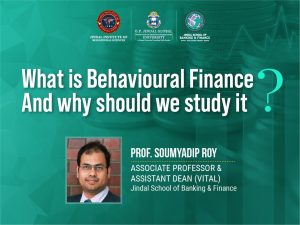
By: Prof. Sushant Chandra, Assistant Professor and Assistant Director, Clinical Program, Jindal Global Law School
The dual idea of pluralism and diversity promotes accommodativeness in Indian democracy. Minority rights have evolved in the Constitutional discourse. The word “minority” evokes an imagination characterised by vulnerability and amenable to exploitation. The understated premise is the assumption of the majority trampling the minority, if given a free hand. To prevent this, special protection was given to minorities under the Constitution to maintain plurality and the secular nature of democracy.
The members of the Constituent Assembly safeguarded the interest of minority communities in providing the education of their “choice” to protect their interests. This right protects the interest of minorities in “establishing and administering” an educational institution of their choice. The words “establish” and “administer” are to be read conjunctively, not disjunctively.
Do the minorities have a right to “establish and administer” educational institutions under Article 30 (1) or under Article 19 (1) (g), akin to members of the majority community? This right must be located under Article 30 (1) and not under Article 19 (1) (g), which immunises this from state regulations. Article 30 (1), unlike Article 19 (1) (g), is not qualified by reasonable restriction in view of “public interest”. In 2002, a judgment rendered by an 11-judge bench in the T.M.A Pai Foundation case was a watershed ruling. It restored the intent of the Constituent Assembly by rendering Article 30 (1) more as a safeguard than as a right.
A five-judge bench was constituted a year later in Islamic Academy of Education vs. State of Karnataka, to explain the judgment in the T.M.A. Pai case but ended up with unwarranted explanation that meant overruling T.M.A Pai. A couple of years later, in P.A Inamdar, a seven-judge bench of the Supreme Court sat under Chief Justice R.C Lahoti to cull out the principles of T.M.A Pai and held that minorities share a common right with the majority to “establish and administer” educational institutions under Article 19 (1) (g). The consequences meant larger state regulation in “administering” of educational institutions by the minorities. The word “administer” includes decisions such as: selecting students, appointing staff, deciding fee and salaries, disciplinary proceedings against employees etc.
The next debacle surfaced when 25 per cent reservation was provided to the children from economically weaker sections and the disadvantaged category under the Right of Children to Free and Compulsory Education Act, 2009. The question: Was reservation applicable to minority institutions? In the Society for Unaided Private Schools of Rajasthan vs Union of India case (2012), the apex court treated unaided private and unaided minority schools on the same footing, denying application of any such reservation on the principled ground of not seeking any aid from the state. The reservation clause was made applicable to aided minority educational institutions in view of reconciling the minority rights under Article 30 (1), with individual rights under Article 29 (2). In the Pramati Educational and Cultural Trust case (2014), wherein the constitutional validity of Article 15 (5) and Article 21-A were assailed, the Supreme Court overruled Society for Unaided Private Schools of Rajasthan to the extent it made the reservation clause applicable on aided minority institutions. Pramati was a regressive judgment by the progressive court, without any principled justification. It restores a pre-T.M.A. Pai reading of Article 30 (1), when the court regarded it not merely as a safeguard but located the right to “administer” educational institutions. A division bench of the Supreme Court issued a notice to the Centre in Independent School Federation of India vs State of Uttar Pradesh in July, 2016, to file its response on the application of the reservation clause under the RTE Act 2009, on minority aided and unaided schools. Primary education is the biggest equaliser and must be treated differently from secondary or tertiary education in imposing duties on aided and unaided minority schools. It provides formative grounding in educative values necessary to exercise choices consistent with the ideas of equality of opportunity and social justice. This distinguishes it from secondary and tertiary education. Minority institutions, aided or unaided, must impart educative values. This constitutional obligation could be located in fundamental duties which provide for promoting “brotherhood among all the people of India, transcending religion.” This reading is consistent with the object of the Right of Children to Free and Compulsory Education Act, 2009 which, besides universal education, espouses social inclusiveness.
While laying down the law for providing reservations in minority schools, aided or unaided, it must be ensured that identity of minority rights is not mutilated. Would 25 per cent reservation in minority schools mutilate the identity of minority rights under Article 30 (1)? Does the level of education, primary in this case, have any role in evaluating mutilating of identity of minority rights?
The minorities’ right to administer their educational institutions warrant maximum autonomy while running unaided schools and lesser in running aided schools. The percentage of reservation and degree of education, both, are fused in different degrees which define the identity of minority rights.In Society for Unaided Private Schools of Rajasthan, the court took the decision by categorically exempting unaided minority schools, while in Pramati, exemption was extended to aided schools as well. Pramati didn’t rationally evaluate the importance of primary education, the duty of minority schools in imparting it, wrongly evaluating the identity of minority rights and the reasonableness of the 25 per cent reservation clause. It is perhaps time for the Supreme Court to revisit its view on the application of reservation clause on minority aided and unaided schools. This is important in view of the larger constitutional obligation to create an egalitarian society imbued with principles of fair equality of opportunity, dignified life and social justice.
-The article was originally published in The Tribune dated November 21, 2016



